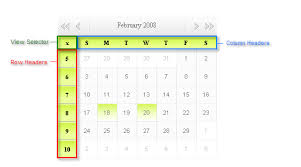row
英 [rəʊ]
美 [ro]
- n. 行,排;划船;街道;吵闹
- vt. 划船;使……成排
- vi. 划船;争吵
- n. (Row)人名;(英)罗
CET4 TEM4 考 研 CET6
row 排,行,划船1.来自古英语 raew,排,行,系列,词源不确定,可能最终来自 PIE*rei,刮,砍,劈,词源同 rift,river. 2.划船,来自古英语 rowan,划船,来自 Proto-Germanic*ro,划船,来自 PIE*ere,划船,词源同 rudder.
- row
- row: There are three distinct words row in English. The one meaning ‘use oars’ [OE] goes back to a prehistoric Germanic base *rō- ‘steer’, which also produced Dutch roeijen and Swedish ro, not to mention English rudder. Row ‘orderly line’ [OE] comes from a prehistoric Germanic *raigwa, and is probably related to German reihe ‘row’. Row ‘noisy quarrel’ [18] seems to have originated in the late 18th century as a piece of Cambridge University slang, but where it came from is not known.
=> rudder - row (n.1)
- "line of people or things," Old English ræw "a row, line; succession, hedge-row," probably from Proto-Germanic *rai(h)waz (cognates: Middle Dutch rie, Dutch rij "row;" Old High German rihan "to thread," riga "line;" German Reihe "row, line, series;" Old Norse rega "string"), possibly from PIE root *rei- "to scratch, tear, cut" (cognates: Sanskrit rikhati "scratches," rekha "line"). Meaning "a number of houses in a line" is attested from mid-15c., originally chiefly Scottish and northern English. Phrase a hard row to hoe attested from 1823, American English.
- row (v.)
- "propel with oars," Old English rowan "go by water, row" (class VII strong verb; past tense reow, past participle rowen), from Proto-Germanic *ro- (cognates: Old Norse roa, Dutch roeien, West Frisian roeije, Middle High German rüejen), from PIE root *ere- (1) "to row" (cognates: Sanskrit aritrah "oar;" Greek eressein "to row," eretmon "oar," trieres "trireme;" Latin remus "oar;" Lithuanian iriu "to row," irklas "oar;" Old Irish rome "oar," Old English roðor "rudder").
- row (n.2)
- "noisy commotion," 1746, Cambridge University slang, of uncertain origin, perhaps related to rousel "drinking bout" (c. 1600), a shortened form of carousal. Klein suggests a back-formation from rouse (n.), mistaken as a plural (compare pea from pease).
- 1. We had a humongous row just before she left.
- 就在她离开之前,我们大吵了一架。
来自柯林斯例句
- 2. After the row in a pub he drove off in a huff.
- 在酒吧里吵了一架后,他气鼓鼓地开车走了。
来自柯林斯例句
- 3. He finished second in the championship four years in a row.
- 他连续4年获得锦标赛亚军。
来自柯林斯例句
- 4. He has been on Death Row for 11 years.
- 他已经在死囚区关了11年。
来自柯林斯例句
- 5. My husband has just had a blazing row with his boss.
- 我丈夫刚和他老板大吵了一架。
来自柯林斯例句
[ row 造句 ]
